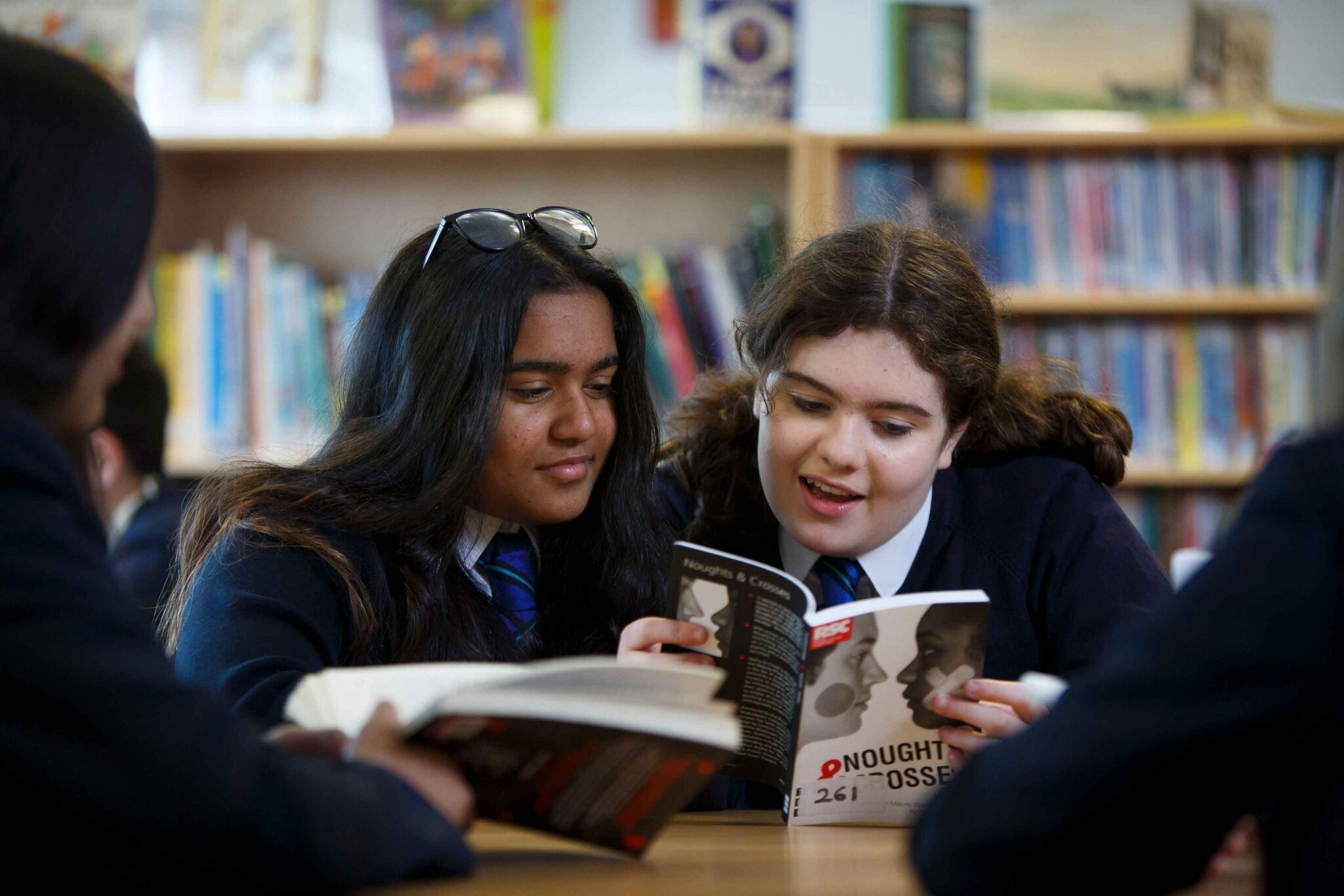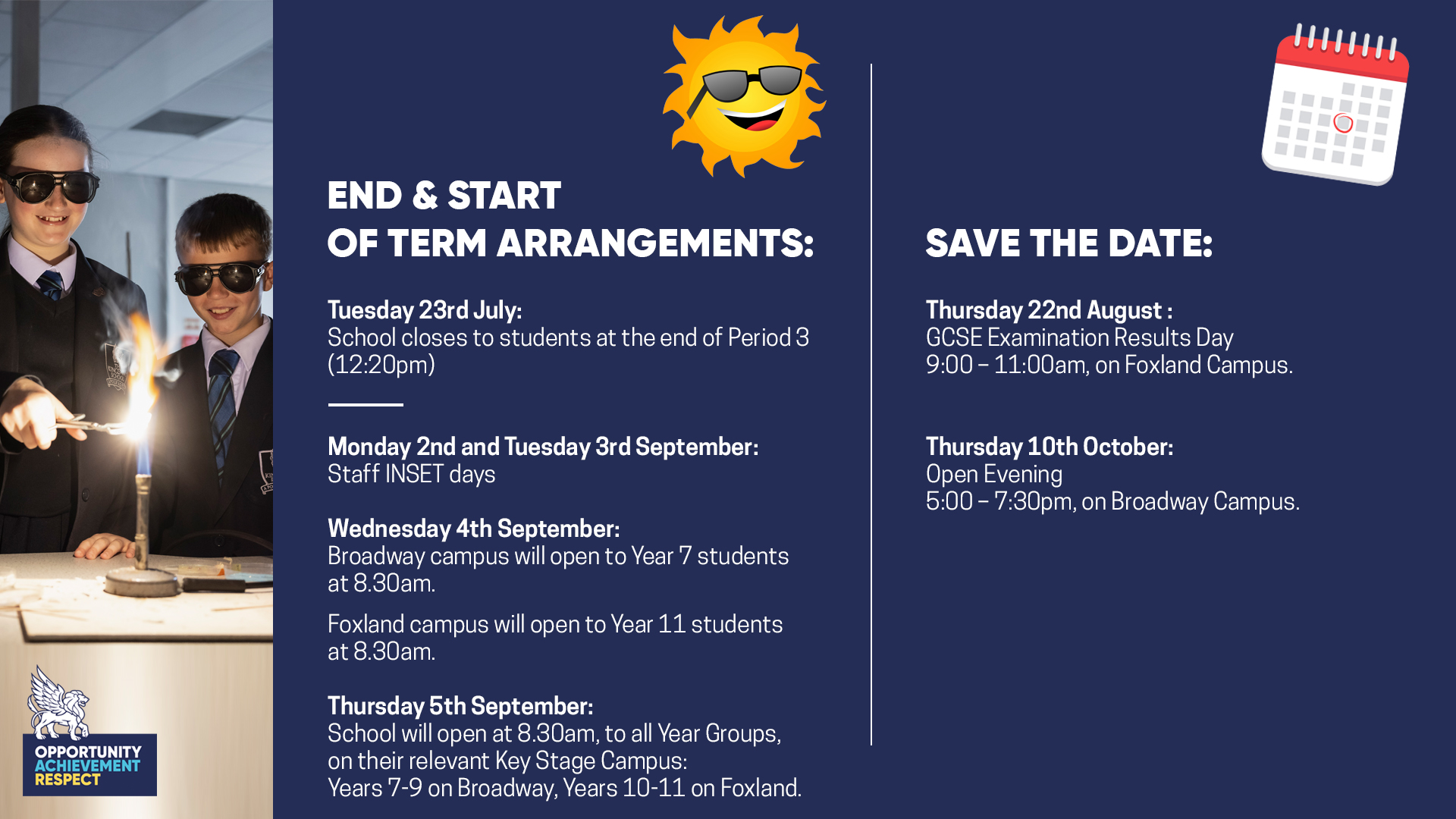
Curriculum Intent
At the Kingsway School, we aim to offer our students a well planned, rich and diverse curriculum which is engaging, well sequenced and increases their cultural capital through the delivery of key skills and powerful knowledge.
Curriculum summaries
Core Curriculum Principles
Our core curriculum ideas and principles are the values and pedagogy that underpins each scheme of work at The Kingsway School; these are up to date as of the start of the academic year beginning in September 2020. These are the cornerstones of our curriculum design and our aim is to ensure that these principles underpin our Key Stage 3 curriculum in its entirety in order for our intent to be fully realised.
-
Powerful Knowledge: All schemes will include Cultural Capital through powerful knowledge work. This should be enriching KNOWLEDGE that is additional to what is needed for the curriculum. This may be through Cultural Capital starters or the seamless links and opportunities that present themselves when delivering our core curriculum content. Students will be encouraged to make thematic and conceptual links in relation to the ‘big ideas’ they learn about across their different subject areas via the medium of Concept Mapping. Across Key Stage 3 (and in addition to our National Curriculum coverage), we endeavour to provide students with the following bodies of powerful knowledge:
-
- Students will study the historical significance of their subjects: the great thinkers, significant people, experts and significant developments, dating back to the thinking formed by ancient civilisations.
- Students will study diversity in their subject areas: This is to ensure that our curriculum reflects our diverse school community and the diverse world we live in. Often the widely recognised great thinkers can fall into the category of “white, male and dead”. We aim for students to think critically about diversity and see influential people, moments and achievements by those of all gender, cultures, races and backgrounds to help us celebrate diversity.
- Social and Political Issues in your subject area: This is to get students to link all of their studies to the world around them and current issues. This would be most effective when subjects challenge their students to be critical and engage with the ‘big ideas’ in society through the study of politics, critical thinking and social issues relating to their subject areas.
-
- Essential Knowledge & Recall: For each year group, departments will identify key aspects of learning that will be classified as ‘Essential Knowledge’. This is the content that students will learn in each year group that they will need at a later date and in order to access the next level of their learning. It is essential knowledge recall that will form part of regular recall activities that will be included as part of the schemes at regular intervals. Recall activities should extend beyond just what students learned in the last lesson and should even reference ‘essential knowledge’ that students have learnt over an extended period of time.
- National Curriculum Coverage: The expectation continues to be that our Key Stage 3 curriculum is ‘at least as broad as the national curriculum’. Although we are aiming to go beyond the national curriculum, those designing the curriculum aim to ensure that the curriculum as a whole at Key Stage 3 covers all essential areas of the national curriculum and prepares students to study a wide range of subjects at Key Stage 4.
- Pitch, Pace & Challenge: When planning schemes of work at The Kingsway School, we focus on ensuring that our curriculum content is pitched at a level that will build on the learning they did in primary school. We begin by ensuring that Year 7 is pitched correctly at the start of the year (and has enough challenge) and then ensure that the curriculum gets progressively more difficult as students move through the year; we then make sure that Year 8 content is more challenging than Year 7 and so on to make an increasingly more challenging curriculum journey that prepares students to study effectively at Key Stage 4.
- Personalised Learning Through Differentiation: Although we teach most subjects in mixed ability classes earlier on in school, we still strive to ensure that pupils can experience learning that is matched to their needs. In order to do this, teaching and schemes of work are differentiated using the following tools:
- The 7 types of differentiation (task, outcome, choice, support, pace, feedback, collaboration)
- Wave 1 & 2 strategies as outlined in Stockport's SEN standards which link to national frameworks and expectations.
- Take It Further Activities: As we continue with mixed ability teaching for many subject areas. It is essential that there are ‘Take it Further’ activities for our most able students and that we use the same language for these (and logo where possible). These tasks should not just be ‘extra work’ to keep them busy… they should have an increased level of challenge… Ofsted noted that this was done best when students were asked to ‘be critical’ and engage with ‘big ideas’... this is not relevant for all subjects but can be considered for most.
- Assessment Milestones: Schemes of work and long term plans will have key assessment moments known as ‘assessment milestones’ so that departmental staff know what they will be FAR marking. Departments will track when students are on track by using these milestones as key tools to diagnose where a student is working at and what they need to do to improve. Departments plan their milestones by considering the following criteria:
- That assessments get more difficult as students move through each year group. This may be through increased content or the need to apply a more difficult skill as they move from Year 7 to Year 8 to Year 9.
- Assessments are structured for students to recall ‘essential knowledge’ or skills that they have not recently learnt as well as the most recent content.
- Can Do Lists And WAGOLLs: departments have a clear idea of what students should be able to do or know to reach ‘expected’ and ‘greater depth’ in each year group. Schemes of work ensure that they give students the opportunity to meet the criteria on these lists. Where this is possible, teachers provide models or ‘WAGOLLs’ at work at ‘expected’ and ‘greater depth’. This is either produced by teachers or takes the form of examples of actual student work when these are available. WAGOLLs are moderated where possible to ensure they are pitched correctly.
- AFL Strategies: AFL or ‘assessment for learning’ is part of all lessons at The Kingsway School. This is where teachers regularly and informally assess students’ in their lessons to track understanding, knowledge, retention and ability to apply skills. This is something that is outlined as a key principle for supporting students of all abilities to reflect on their learning and make sure real learning has happened before we move on to the next chunk of learning.
- Literacy And Vocabulary: Each subject area takes responsibility for teaching the literacy of their subject. This will include explicit teaching of key vocabulary, how to read and understand key texts and how to write effectively and fluently where appropriate. Each scheme of work will have key vocabulary lists and definitions which are shared with students in their exercise books before or during the unit and this may be something that forms part of departmental displays.
Key Stage 3 Overview
In Years 7 to 9 compulsory national curriculum subjects are:
- English
- Mathematics
- Science
- Art & Design
- Citizenship (Life Skills)
- Computing
- Design & Technology
- Languages
- Geography
- History
- Music (Performing Arts)
- PE
Key Stage 4 Overview
During Key Stage 4 students work towards national qualifications - usually GCSEs. The compulsory national curriculum subjects are the Core and Foundation subjects.
Core subjects are:
- English Language (GCSE)
- English Literature (GCSE)
- Maths (GCSE)
- Science (GCSE)
Students must also have included in their curriculum foundation subjects. These subjects may not be examined:
- Computing
- Physical Education (Core)
- Citizenship (Life Skills)
- Religious Education
- Sex and Relationship Education (Life Skills)
Careers education is integrated into our Life Skills programme and complemented by specialist provision; information from employers and post 16 providers; bespoke careers events; and independent careers guidance.
As well, students choose 4 subjects from a wide variety of options.
- Art (GCSE)
- Biology (GCSE)
- Business Studies (GCSE)
- Chemistry (GCSE)
- Computing (GCSE)
- CoPE (Non-Examined)
- Creative Media Production (BTEC Levels 1 & 2)
- Engineering Design (OCR Cambridge National Certificate Levels 1 & 2)
- French (GCSE)
- Geography (GCSE)
- German (GCSE)
- Health and Social Care (OCR Cambridge National Certificate Levels 1 & 2)
- History (GCSE)
- Hospitality & Catering (WJEC Certificate Levels 1 & 2)
- Film Studies (GCSE)
- Music (GCSE)
- Performing Arts: Acting (Pearson BTEC Levels 1 & 2)
- Performing Arts: Dance (Pearson BTEC Levels 1 & 2)
- Physical Education (GCSE)
- Physics (GCSE)
- Religious Studies (GCSE)
- Spanish (GCSE)
- Sport (OCR Cambridge National Certificate Levels 1 & 2)
- Science Trilogy (GCSE)
- Travel & Tourism (Pearson BTEC Levels 1 & 2)
For more information about the curriculum please contact
Mr J. Sadler, Deputy Headteacher: j.sadler@kingsway.stockport.sch.uk
